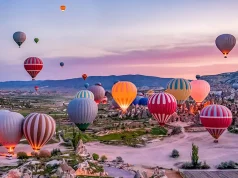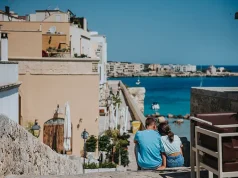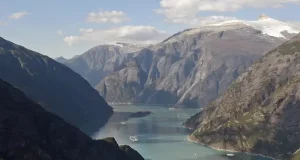
Spontaneous travel has always carried a certain allure, yet its appeal has grown stronger in a world where plans often feel rigid and heavily structured. Greece exemplifies this perfectly, where travelers arrive with intentions to visit Santorini or Mykonos but end up discovering lesser-known islands like Folegandros or Sifnos simply by following local recommendations at a harbour. The excitement of hopping on a ferry without a fixed destination mirrors the unpredictability found in other forms of entertainment, such as free spins, where outcomes unfold without a script. In Greek travel, this element of uncertainty has become a path toward deeper impressions, genuine encounters in family-run tavernas, and stories of hidden beaches that would never have emerged from a carefully curated schedule. The Greek islands, with their interconnected ferry networks and culture of spontaneous hospitality, encourage exactly this kind of unscripted exploration.
When the best journeys begin without a plan
Spontaneous travel tends to reveal layers of a destination that rarely appear in guidebooks. Travellers who leave room for uncertainty often find themselves exploring neighbourhoods they had not researched, trying local dishes recommended by someone they just met, or wandering along routes that unfold naturally rather than through prior planning. This freedom alters the nature of the experience, because moments are not evaluated against expectations. Instead, they are allowed to stand on their own, shaped by the pace of the day and the rhythm of the environment.
The emotional value of these moments often lies in their unpredictability. They create space for curiosity rather than obligation, allowing travellers to absorb a destination at a natural pace. Some discover that their most vivid memories come from small discoveries rather than major landmarks, because those moments carry the texture of daily life rather than the structured experience of a popular attraction.
The cultural framework behind spontaneous travel
The growing interest in unplanned journeys to places like Greece is linked to a broader shift in travel culture. Many people seek trips that reflect their personal rhythms rather than rigid templates. Flexible travel options and digital resources make it easier to navigate new destinations without extensive preparation. Local transport maps, real-time restaurant reviews, and open-ended accommodation bookings allow travellers to adjust plans on the move. This flexibility encourages a more intuitive style of exploration.
Destinations known for their iconic landmarks benefit from unplanned exploration. Large cities often have diverse neighbourhoods that reveal local culture in subtle ways. A spontaneous visit to a small gallery in Barcelona or a late-evening walk along Amsterdam’s quieter canals can leave a deeper mark than a scheduled tour. Travellers who embrace chance often describe a stronger connection to the places they visit, shaped by experiences that feel entirely their own.
How unexpected destinations shape personal narratives
The value of spontaneous travel lies partly in how it shapes memory. Encounters that arise without planning tend to remain vivid because they are tied to genuine surprise. A change in the weather might redirect an afternoon into a museum discovered by accident. A missed train might lead to an unexpected stop in a smaller town. These shifts create narratives that evolve naturally, giving trips a sense of individuality.
The practice also encourages a broader understanding of place. When travellers choose destinations based on timing, opportunity, or a sudden opening in their schedule, they often end up visiting regions that would not have appeared on their original list. This opens the door to cultures, landscapes, and perspectives that challenge assumptions and expand awareness.
Spontaneous travel continues to earn attention among those who see exploration as more than a checklist. It offers a balance between discovery and reflection, inviting travellers to engage with the world in a way that feels immediate and unfiltered. The stories formed in these moments carry a depth that planned itineraries rarely match, shaping memories that endure long after the journey ends.





